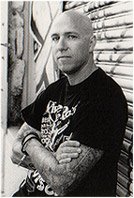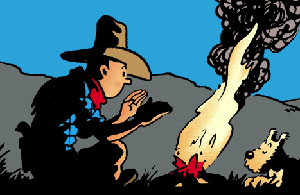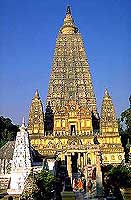by Noah Levine.
 This is the story of a young man and a generation of angry youths who rebelled against their parents and the unfulfilled promise of the sixties.
This is the story of a young man and a generation of angry youths who rebelled against their parents and the unfulfilled promise of the sixties.As with many self-destructive kids, Noah Levine's search for meaning led him first to punk rock, drugs, drinking, and dissatisfaction. But the search didn't end there. Having clearly seen the uselessness of drugs and violence, Noah looked for positive ways to channel his rebellion against what he saw as the lies of society.
Fueled by his anger and so much injustice and suffering, Levine now uses that energy and the practice of Buddhism to awaken his natural wisdom and compassion.
Noah Levine is a Buddhist teacher, author and counselor. He is trained to teach by Jack Kornfield of Spirit Rock Meditation Center in Woodacre, CA. He teaches meditation classes, workshops and retreats nationally as well as leading groups in juvenile halls and prisons. Noah holds a masters degree in counseling psychology from CIIS. He has studied with many prominent teachers in both the Theravadan and Mahayanan Buddhist traditions.
Noah currently lives in Los Angeles, CA.

The Dharma Punx
Dharma Punx is not just a book it is a way of being, it is how we have come to integrate our political and spiritual beliefs. We sought a different path than our parents, the once idealistic hippie generation that had long since cut their hair, left the commune and bought in to the system. Peace and love had failed to make any real changes and in response to the despair and hopelessness we felt came the punk rock movement. Seeking to rebel against society's fascist system of oppression and capitalist driven propaganda the kids responded in our own way, different from those before us, a new revolution for a new generation. Aware of the corruption in the government and inconsistencies in the power dynamics in our homes we rebelled against society and family in one loud and fast roar of teen angst. Unwilling to accept the dictates of the system, we did whatever we could to rebel. We wanted freedom and were willing to fight for it.
The situation was compounded by the personal despair so many of our generation were facing; broken homes, addicted parents, abusive teachers and a lack of elders on top of all the normal strife of growing up. Our parents were too busy trying to succeed or survive in the aftermath of the sixties and the race for riches of the seventies and eighties, or in my case the dedication to spiritual practice and service that at times kept my father ever occupied.
So we hit the streets, fueled by the music of revolution, anger, angst, fear, despair, hatred and a total dissatisfaction with the status quo. We dyed our hair and donned new uniforms to set us apart from the mindless masses of adults and brain dead herds of kids that were going along with the lies, buying in to the great American fallacy, playing sports, going to school and listening to the awful popular music of the eighties that carried no meaningful message and was in our minds just another symptom of the disease that was plaguing our society.
We turned to drugs and booze to escape from the feelings of hopelessness and despair, many of us going directly to narcotics as teenagers. Eating acid like it was candy and chasing speed with cheap vodka, smoking our parents weed, consuming gallons of cheep beer all in a vain attempt to stay numb. Turning toward a nihilistic outlook on life. Having set our selves apart, we were a constant target of violence and ridicule. Fighting to survive, fighting for our views and right to be different, we often found ourselves involved in some battle or another, if it wasn't the cops it was the jocks or hicks or each other.
All the violence and drugs led to many early deaths; overdoses, murders, car accidents and countless suicides. Death and grief has been a central part of the lives of all the kids who were associated with the early punk rock scene. Following the great examples set by Sid Vicious and Darby Crash, live fast, do lots of drugs, fuck the system by dying young. Half of the kids that I hung out with in the eighties are dead and that is just from my crew in a small town punk rock scene.
This book is about those of us who didn't die young and are still around in the new millennium. Those of us who haven't totally sold out, who go around talking about punk as a phase they went through as a kid, this is about those of us who, fueled by our dissatisfaction with life and the material world, have turned toward Spiritual Practice. It is a book about finding the freedom we were seeking as young idealistic punk rockers. Having clearly seen the uselessness of drugs and violence and having found positive ways to channel our rebellion against the lies of society, still being fueled by anger at injustice we now use that energy to Awaken rather than for self-destruction.
This is a story about those of us who have taken ourselves and the struggle off of the streets. Who are now fighting the inner battle against delusions and ignorance, yet continuing to express our selves in our own unique Punk Rock ways outwardly. Having put down the booze and drugs, having let go of the violence and hatred, having lost countless friends to prison and death, we have found the Dharma. We have found the highest spiritual truth. The spiritual path has been described by the Buddha as being, " against the stream", against mans selfish desires, this fits in perfectly with the punk rock ethic, turning outer rebellion into an inner revolution.
This spiritual truth has come in many different forms and through many different spiritual traditions, while I find myself primarily engaged in Buddhist practice some of the other Dharma Punx have dedicated themselves to the Sufi path of Islamic mysticism, to a personal relationship with Christ or to the Hindu path of devotion and service. I use the term Dharma meaning the Truth with a capital T, and as my father often reminds me, "that which is true is found in all spiritual and religious traditions". No one has the corner on the truth.
This book will take you on a, sometimes ugly, sometimes beautiful, spiritual journey from Juvenile Hall to the Dharma Hall. It follows the life of a confused kid and his search for clarity, it will take you from the depths of grief and despair to the heights of spiritual awareness, from the streets of America to the paths of rural Asia. This is a story of transformation, a generation often touted as X, finding meaning and propose in spiritual practice and service. It is a full circle, from being institutionalized to teaching meditation in institutions, from robbing and stealing to giving and forgiving. It's about finding freedom and then spending the rest of your life giving it all away.
The Dharma Punx is not just my story it is the story of my Generation.
My hope is that this book will be to my generation what Kerouak's Dharma Bums and On the Road were to his generation and countless kids afterwards. This is a story that has yet to be told and people are hungry for this kind of literature, something they can relate to, that has meaning, that is inspirational, a book that is real, that we all lived through.
My intention in writing this book is inspire people to find the freedom they are seeking. To encourage investigation of the human heart and mind, and offer an alternative to drugs and violence. I am sharing the importance of meditation, prayer and spiritual exploration, in a medium that is easy to digest, emotionally moving and even entertaining. It will give hope to the older generations, and inspire the younger ones. People will recognize themselves and their children in this book and see the awesome potential for healing and happiness even out of the depths of suffering, grief and despair.
I offer a story of Gen. X that isn't all annihilation or some cheesy romance about brain dead computer programmers. I offer the path of transformation and the possibility of freedom.
This book looks at what it was like growing up in the eighties as a punk, committing to spiritual practice in the nineties and using the rest of your life to share this precious gift with others. It is not just one story but the lives of several different people that have come together to form our crew the Dharma Punx. A group a men and women who are deeply committed to spiritual practice and engaged service in the world. These are the new face of the punk rock scene, a crew of committed dharma practitioner's that you can still find down at the local club singing along to our favorite bands and doing the occasional stage dive.
Some of the Dharma Punx are in world famous bands or are internationally known Tattoo artist's others work 9-5's, some are married and own their homes, the rest of us rent, trying to get by, all of us are friends and all of us are real people. This is not a fictional tale of romantic suffering and Hollywood love stories, its about real people, real loss, and genuine spiritual experiences.
I offer this book to all of my friends that didn't make it… Or maybe they did. And we are the flunkies still hangin around trying figure out that we are not these bodies.
Dharma Punx Homepage





